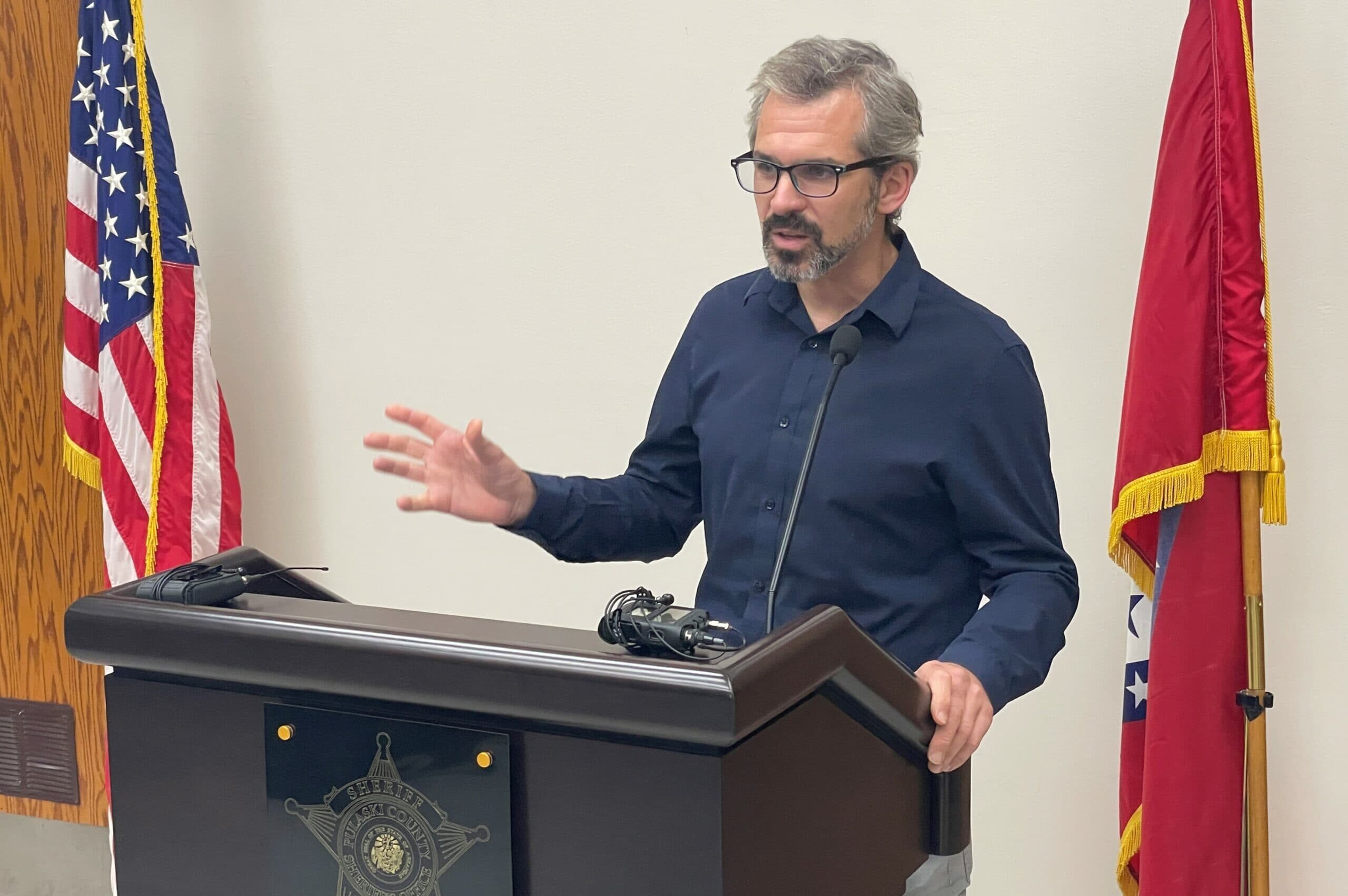UAMS Assisting Pulaski County Sheriff’s Office in Care of Detainees with Substance Use Disorder
| Several University of Arkansas for Medical Sciences (UAMS) researchers are working with the Pulaski County Sheriff’s Office to reduce the use of opioids among its incarcerated population.
The sheriff’s office announced Tuesday that it had received a $1.3 million grant from the U.S. Bureau of Justice Assistance in connection with its Comprehensive Opioid, Stimulant and Substance Use Program. The grant will be used to continue and expand the office’s Reentry program, providing funds for additional staff, including a substance abuse counselor and two additional peer recovery support specialists. The grant will also fund medication-assisted treatment (MAT) for detainees with opioid use disorder both pre- and post-release, transitional housing for detainees upon release, and curriculum materials for classes for incarcerated individuals.
Nickolas Zaller, Ph.D., a professor in the Fay W. Boozman College of Public Health and director of UAMS’ Southern Public Health and Criminal Justice Research Center who will be evaluating the project’s effectiveness, said Tuesday that it was important to address the needs of those detainees with opioid use disorder as early in their incarceration as possible.
“The biggest challenge is determining who is going to be eligible, who isn’t and how long they will be in custody,” said Zaller. “People who have been incarcerated have more than a hundredfold greater risk of dying from an overdose compared with the general public because of their waning tolerance to opioids while they are incarcerated.”
Assisting in the enrollment of detainees in the MAT program will be Azizi Ray, Pharm.D., Ph.D., a post-doctoral fellow with UAMS’ Psychiatric Research Institute. Ray will work with male and female detainees housed in the Pulaski County Regional Detention Facility who want assistance in overcoming opioid use disorder through medication during their incarceration and will see that they receive follow-up care in UAMS’ Center for Addiction Services and Treatment. Ray will also provide opioid overdose prevention training and naloxone kits to detainees to contend with post-release overdose mortality.
Along with receiving help in finding housing upon their release through Better Community Development, Inc., a faith-based nonprofit organization, the detainees will receive training and counseling aimed at helping them overcome barriers to reentering the community. One of the classes in the 12-week program focuses on trauma and post-traumatic stress recovery and will be overseen by Melissa Zielinski, Ph.D., an assistant professor in the Department of Psychiatry in the UAMS College of Medicine and director of UAMS’ Health and the Legal System Lab. The classes that Zielinski oversees are conducted by interns in UAMS’ Predoctoral Psychology Internship program and by practicum students from local universities. The topics covered include education on trauma and post-traumatic stress disorder; education on the relation between post-traumatic stress symptoms and addiction; coping and interpersonal skills; resilience and strengths building; and how to seek help for trauma recovery services in the community.
“Nearly all people who become incarcerated have experienced chronic and severe trauma, often beginning in early childhood, and the cycle of trauma, addiction and incarceration has been documented in research for many years,” said Zielinski. “This partnership is an opportunity to take steps to interrupt that cycle through foundational services, including housing and substance use treatment as well as education and skill-building around managing the consequences of trauma specifically.”
